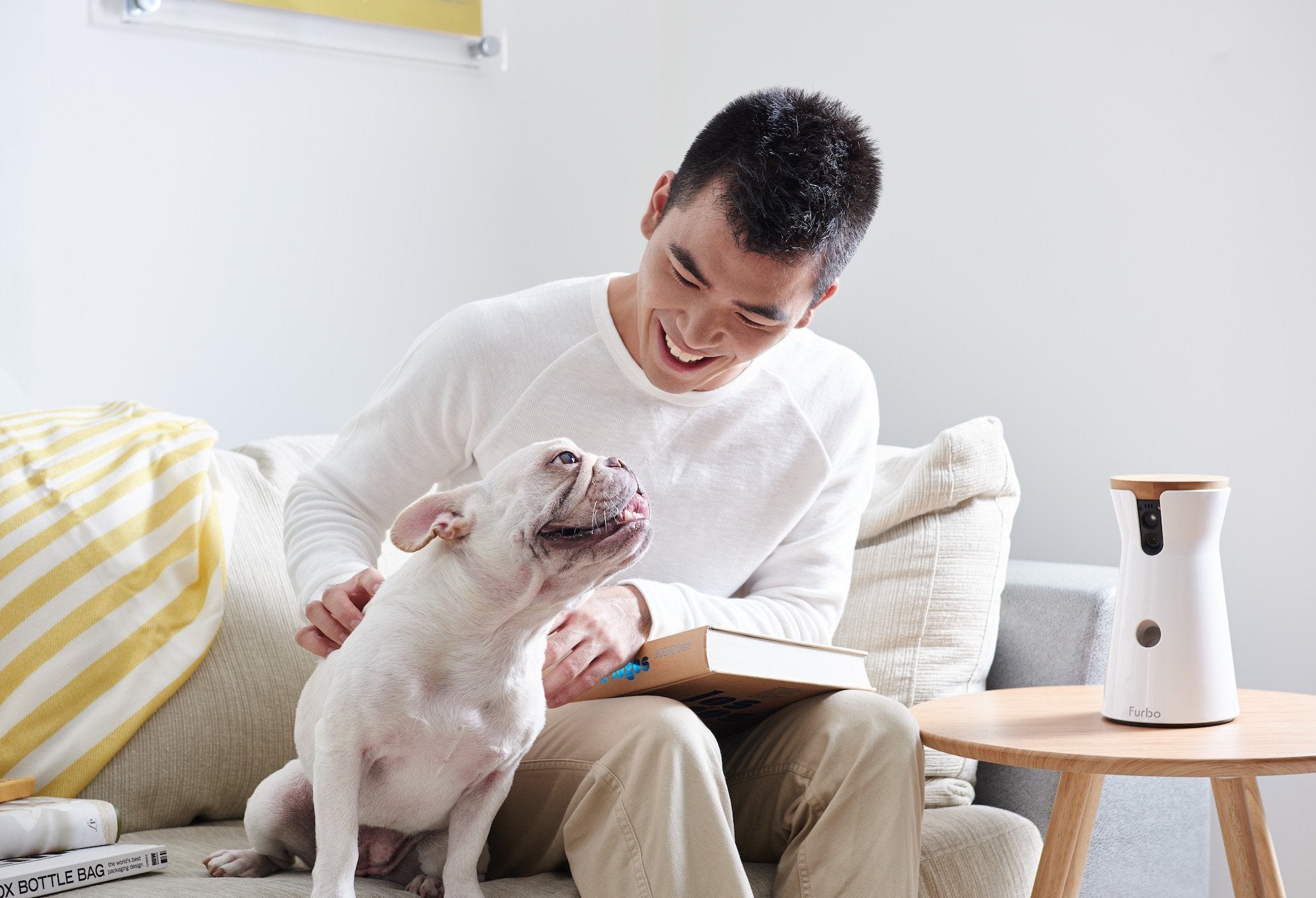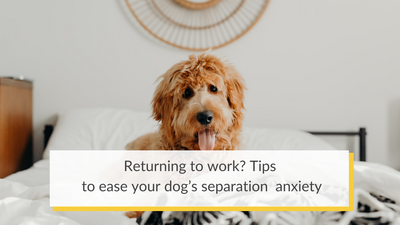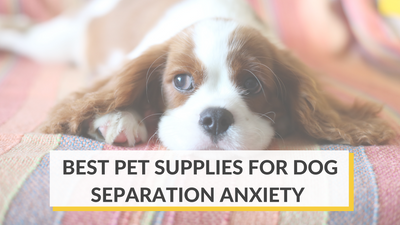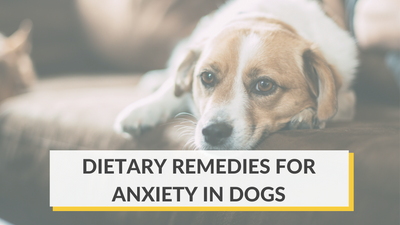Sometimes dogs, especially puppies, misbehave because they have more energy than they know what to do with. If a puppy chews the leg of a chair, it doesn’t necessarily mean they have separation anxiety — but it may mean they need a good teething toy.
However, if your furbaby becomes distressed the moment you grab your coat and keys or if you often find your home looking as if a burglar has paid a visit, your dog may be experiencing extreme and uncomfortable anxiety the moment you walk out the door. Separation anxiety can be a serious issue for both dogs and their parents.
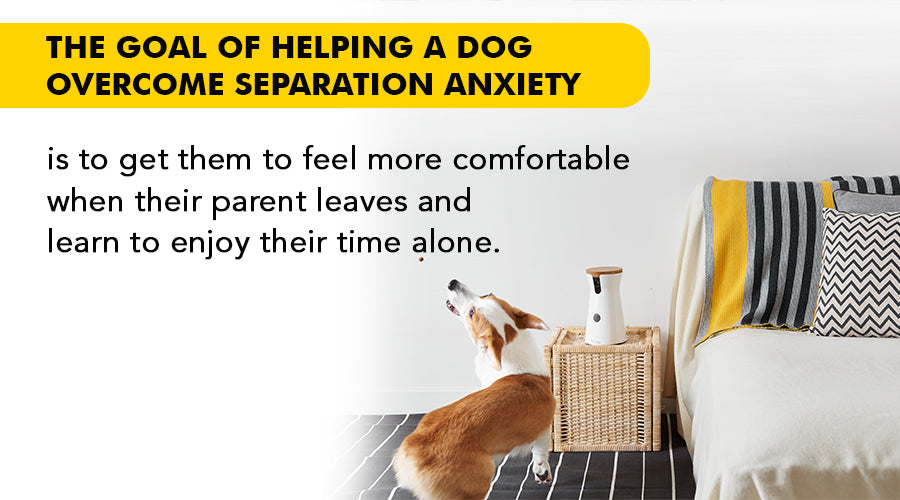
As bad as puppy parents wish they could sit down and have a heart-to-heart with their dog, they need to communicate in doggy lingo to help with separation anxiety. The goal of helping a dog overcome separation anxiety is to get them to feel more comfortable when their parent leaves and learn to enjoy their time alone.
The first step to freedom from separation anxiety is to recognize if your furbaby suffers from it or something else. You know your furbaby better than anyone, and you may recognize symptoms not listed in this guide. However, here are the most common signs and symptoms of separation anxiety in dogs:
- Barking and Howling
Dogs want to protect the ones they love, and your dog may enjoy guarding your home by barking at every squirrel, rabbit or person who passes by the window. It is normal for dogs to alarm their parents of potential intruders, and if you notice this behavior while you are present, then barking is likely not related to separation anxiety. Look out for the following signs instead:
- Barking or howling from separation anxiety is persistent.
- If your dog only barks or howls when left alone, it is likely a symptom of separation anxiety.
- Barking or howling usually accompanies at least one other symptom of separation anxiety.
Dogs howl to attract the attention of or make contact with another animal. Howling is a sound that tugs at our hearts, but hang in there — you’ll soon learn ways to help your furbaby tolerate alone time. They may even grow to enjoy it!
- Destructive Behavior
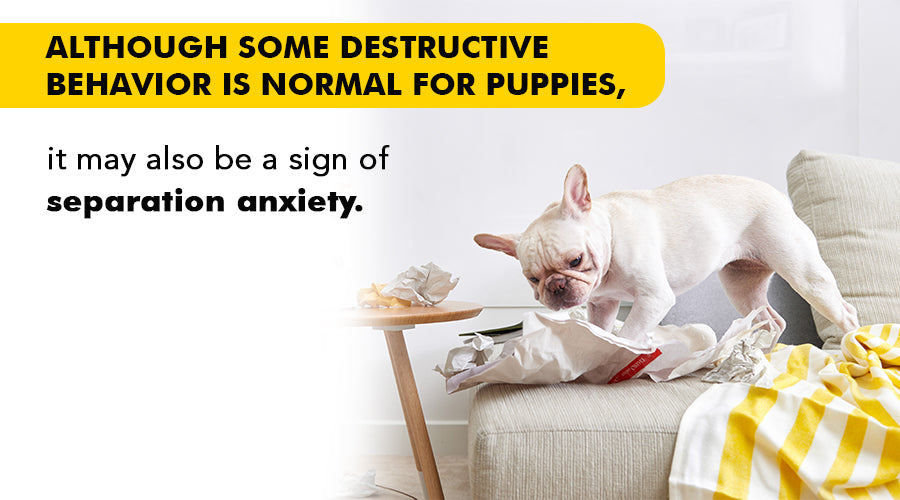
As dog parents, we all know that feeling of coming home after a long day and finding the kitchen trash can flipped upside down or a new sofa pillow reduced to a pile of white stuffing. Although some destructive behavior is normal for puppies, it may also be a sign of separation anxiety.
How do you know if this type of behavior is from anxiety or a devilish disposition?
Here are some other clues to watch for:
- Your dog may scratch and dig at doors or window sills, sometimes to the point of injury.
- Your dog might tear or chew up furniture or other objects while you’re away — but not while you’re home.
Destructive behavior resulting from separation anxiety cannot be resolved through punishment. Instead, as you’ll see in later chapters, your furbaby needs outlets to relieve anxiety and excess energy.
- Running Away
Some dogs experience so much distress when their parent leaves, they will do anything they can to escape. They might dig at doors, leap over a fence or escape the areas they are left alone in.
If a dog is occupied with fun toys or feels calm and ready for a nap, they won’t feel the need to rocket out of your home or yard. On the other hand, a dog might try to run away if:
- They are frightened of sounds while you're gone.
- They feel lonely or bored.
- They feel the need to find you and be close to you.
If your furbaby escapes with the intent to find you, they may not go far from home. However, this can still be a very dangerous situation.
- Pacing
Have you ever felt so nervous about a puzzling situation or while waiting for good or bad news that you couldn't stop pacing? Our furbabies pace for the same reason — to help relieve the stress of being separated from their parent. However, some dogs may pace for other reasons not related to separation anxiety.
Some dogs may pace in anticipation of a treat or fun activity, or because they want to be let outside. Sometimes older dogs pace due to cognitive impairment. If pacing behavior seems strange to you, it never hurts to get your furbaby evaluated by a professional.
If your dog only paces when you’re not home, it may be due to separation anxiety. They will either pace back and forth in lines or continually walk around in circles.

Watch your furbaby’s behavior while you get ready to leave. Do they pace, pant or salivate before you take off? If so, your dog may be stressing out knowing you’ll soon be absent.
- Coprophagia and Accidents
Sometimes our furbabies do things we just can’t understand, but we love them all the same. One of those things is coprophagia, or when a dog eats their excrement. Believe it or not, it is natural for dogs to want to eat fresh stool, as it can be traced to the ancestral instinct to protect the pack from intestinal parasites.
Coprophagia is common in multi-dog households, and 85 percent of dogs with this habit will not eat their own feces. However, sometimes a dog will engage in this stinky habit when they feel anxious.
Here’s how to tell if coprophagia is a symptom of separation anxiety rather than instinct:
- Isolation or anxiety triggers coprophagia.
- The dog has accidents when you are not home, but does not have accidents when you are home. This applies to dogs who are housebroken as well.
- Psychological Distress
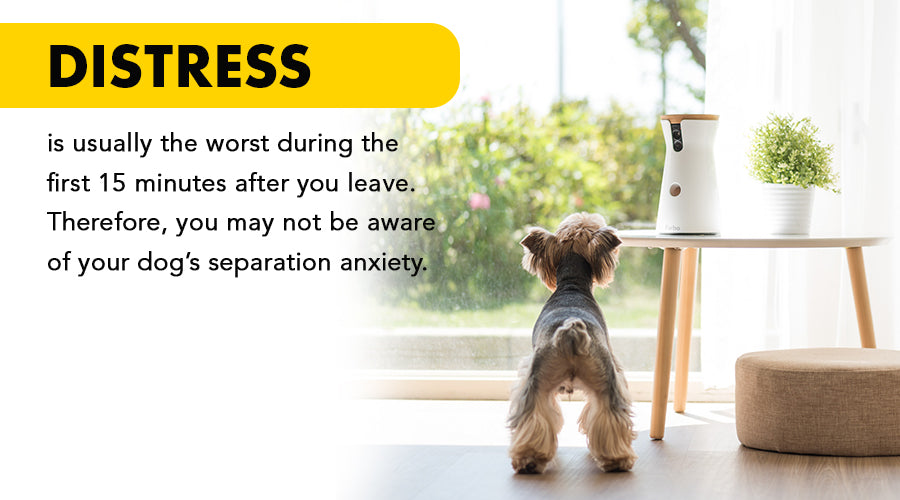
Sometimes you can tell right away if your furbaby is experiencing anxiety. Their psychological distress may manifest in physical signs that you recognize instantly. However, distress is usually the worst during the first 15 minutes after you leave. Therefore, you may not be aware of your dog’s separation anxiety.
Before or during your absence your dog might:
- Experience symptoms of fear such as increased heart rate, panting, salivating and anxious behavior.
- Take an object that holds your scent and chew on it to settle down.
It’s difficult to imagine your furbaby experiencing psychological distress when you leave, but there is no need to feel guilty. We will help you and your furbaby work through separation anxiety for greater health and happiness.
- Excitement Upon Your Return
When you get home, it is hard not to want to open your arms to your furbaby and let them shower you with doggy kisses. As dog parents, we may experience a little separation anxiety ourselves from time to time, and it’s normal to feel joy upon reuniting. However, your puppy’s extreme excitement could also signify a deeper issue.
If your furbaby was not busy playing with toys or napping while you were away, they might have felt lonely, anxious or bored. They can’t wait until you get home to take away their troubles. They may:
- Act very excited when you return.
- Follow you everywhere you go when you are home.
If your furbaby can’t stand to be without you, they may experience overwhelming anxiety in your absence.
Behavioral Issues Not Associated With Separation Anxiety

Not all behavioral issues result from separation anxiety, and it is important to know the difference. The only way to help your furbaby overcome behavioral issues is to first know what is causing them.
Here are some common behaviors that may be due to reasons other than separation anxiety:
- Aggression: Aggressive behavior may be territorial, protective, possessive or fearful.
- Barking: Barking may be a response to pain or injury, or to protect territory.
- Chewing: Dogs may chew because they are teething, hungry, stressed, frustrated or because they lack stimulation.
- Howling: Howling may result from illness or injury, in response to a sound like a siren or in an attempt to get attention.
If your dog displays any unusual behavior, take them to get evaluated to make sure there is not an underlying health issue.
Table of Contents
- Introduction: How to Help a Dog With Separation Anxiety
- Chapter 1: Dog Separation Anxiety Symptoms
- Chapter 2: Medication for Separation Anxiety in Dogs
- Chapter 3: Best Toys for Dogs With Separation Anxiety
- Chapter 4: Dogs Breeds With Separation Anxiety
- Chapter 5: How to Help Puppies With Separation Anxiety
- Chapter 6: How to Train a Dog With Separation Anxiety
- Chapter 7: How Furbo Helps With Separation Anxiety
- Conclusion/Chapter 8: Why Some Dogs Have Separation Anxiety
